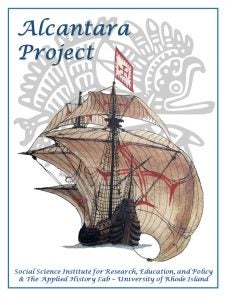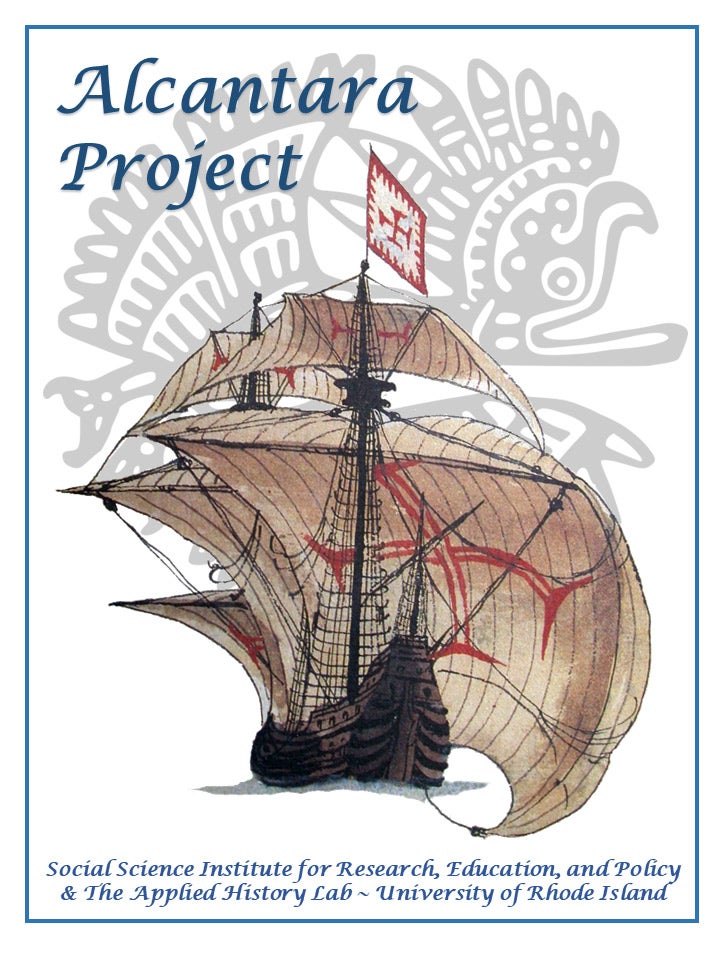Ximena Sevilla, Department of History Multicultural Postdoctoral Faculty Fellow (PI, pictured at left), and Bridget Buxton, Associate Professor of History (Co-PI, pictured at right)
 The 64-gun Spanish Pedro da Alcantara sailed from Perú in 1786 and sank off the coast of Peniche, Portugal, with the loss of 128 lives, 603 tonnes of copper, two thousand boxes of gold and silver coins, an irreplaceable trove of cultural objects and scientific samples from the Peruvian Andes, and the son of an Inca monarch. If a shipwreck like the Alcantara was discovered today, its fate would be decided by a variety of international laws and conventions. None of them, however, recognize any legal rights of the original indigenous owners of looted cultural artifacts or people; there are no international guidelines or best practices established for involving indigenous stakeholders in the management of underwater cultural heritage. The Alcantara Project and its Portuguese, Spanish, and American collaborators are setting out to change that, at least in the case of Iberian shipwrecks carrying central and south American antiquities. With SSIREP funding, the team–which also includes undergraduate researchers Francisco Xavier Alves Pereira (pictured above, at center left) and Jose Maria Montoya (above, center right)–will first attempt to quantify and characterize the American indigenous cultural material brought to Iberia between the 15th-19th centuries and explore how different museums and local authorities are engaging with the peoples whose artifacts they hold. The next phase will be to organize a workshop to produce a white paper and blueprint for best practices for the Iberian states, and offer it as a model for a potential addendum to the UNESCO 2001 Convention on the Protection of Underwater Cultural Heritage. The Alcantara Project is an ongoing endeavor that will achieve its greatest desired outcome when the next ‘Alcantara’ shipwreck is found, and both states and stakeholders respectfully work together to study and preserve its archaeological treasures.
The 64-gun Spanish Pedro da Alcantara sailed from Perú in 1786 and sank off the coast of Peniche, Portugal, with the loss of 128 lives, 603 tonnes of copper, two thousand boxes of gold and silver coins, an irreplaceable trove of cultural objects and scientific samples from the Peruvian Andes, and the son of an Inca monarch. If a shipwreck like the Alcantara was discovered today, its fate would be decided by a variety of international laws and conventions. None of them, however, recognize any legal rights of the original indigenous owners of looted cultural artifacts or people; there are no international guidelines or best practices established for involving indigenous stakeholders in the management of underwater cultural heritage. The Alcantara Project and its Portuguese, Spanish, and American collaborators are setting out to change that, at least in the case of Iberian shipwrecks carrying central and south American antiquities. With SSIREP funding, the team–which also includes undergraduate researchers Francisco Xavier Alves Pereira (pictured above, at center left) and Jose Maria Montoya (above, center right)–will first attempt to quantify and characterize the American indigenous cultural material brought to Iberia between the 15th-19th centuries and explore how different museums and local authorities are engaging with the peoples whose artifacts they hold. The next phase will be to organize a workshop to produce a white paper and blueprint for best practices for the Iberian states, and offer it as a model for a potential addendum to the UNESCO 2001 Convention on the Protection of Underwater Cultural Heritage. The Alcantara Project is an ongoing endeavor that will achieve its greatest desired outcome when the next ‘Alcantara’ shipwreck is found, and both states and stakeholders respectfully work together to study and preserve its archaeological treasures.





